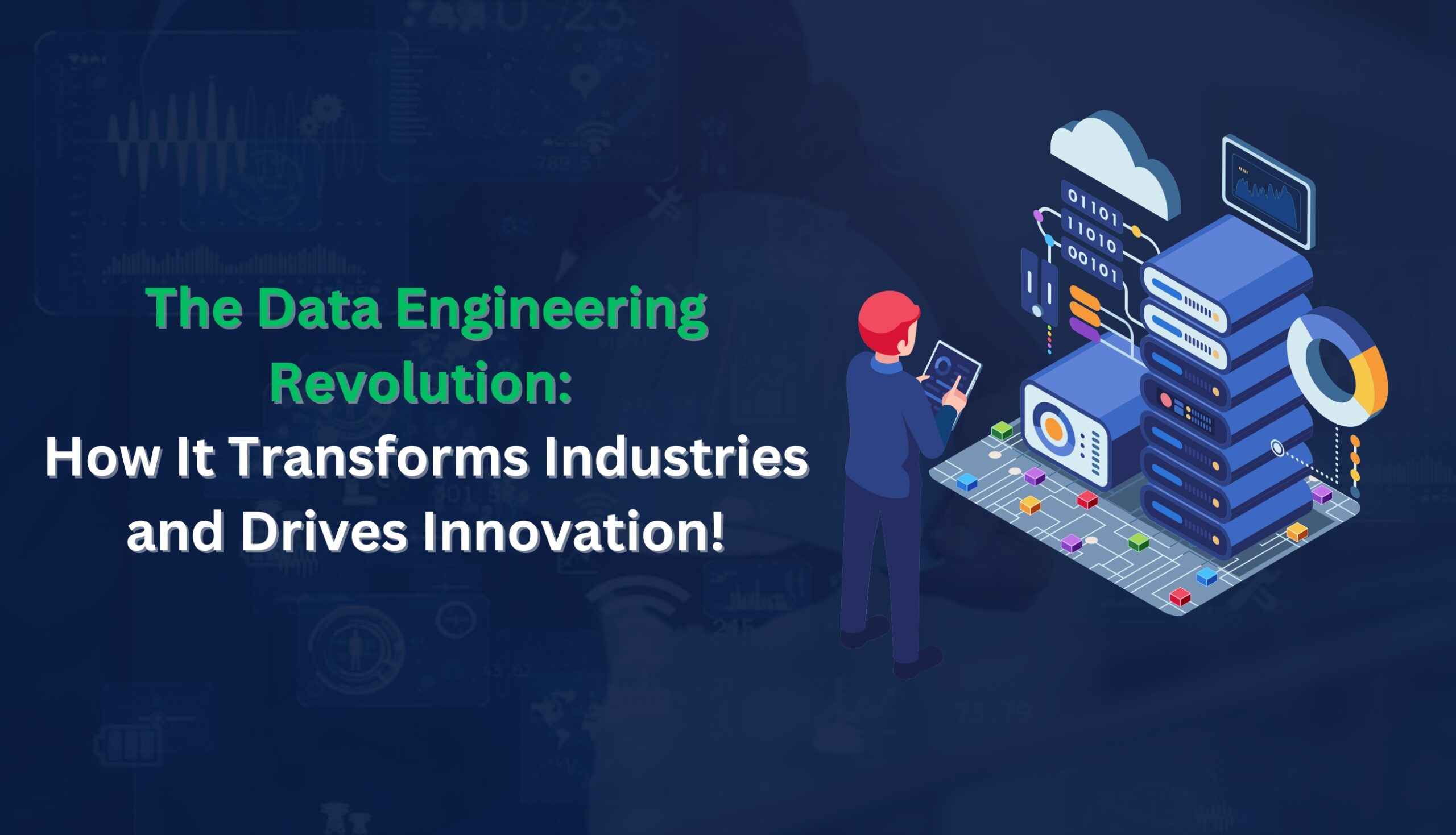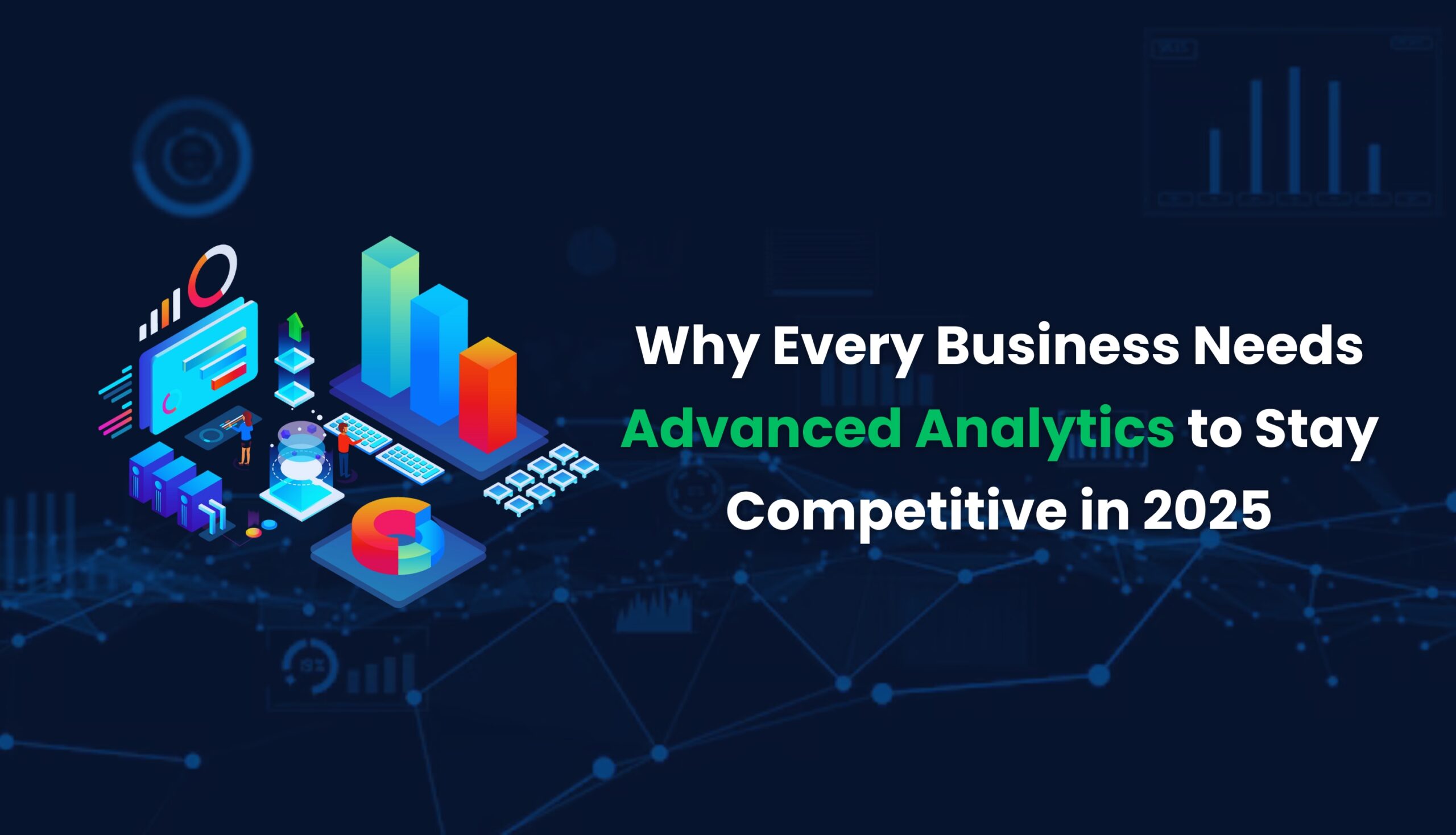The Data Engineering Revolution: How It Transforms Industries and Drives Innovation
In the data-driven world of today, we are experiencing a digital renaissance. Through data, industries are solving problems, optimizing operations, and innovating like never before. The most important reason behind this transformation is data engineering. Let us take a little deeper look into this revolution in data engineering and how the whole industry is challenged by it for innovation and driving competitive advantage and how to thrive in this very fast world.
What Is Data Engineering?
Data engineering involves the design, construction, and operation of big data systems, focusing on issues in data at scale, including access, processing, storage, transmission, analysis and security. Consider the data engineers like the architects and builders of pipelines who transport the raw data to its ultimate destinations and transform it into actionables.
Companies would drown in unstructured data without the data engineers. They ensure that data flows well and is prepared for analysis, allowing data scientists, business analysts, and decision-makers to do their job.
Why Data Engineering Matters More Than Ever
If you are wondering why data engineering becomes big all of a sudden, it is because of the unbelievable volume of data present in today’s world. A recent report estimates that global data creation is set to reach 181 zettabytes by 2025.
This is not just a matter of how much data, it is about speed, complexity, and diversity. This ranges from sensor data in manufacturing in real time to personalized streaming recommendations. Various industry sectors will need to come up with strong solutions in data engineering to stay above the competition.
1. Healthcare: Saving Lives with Data
What if the doctors can predict heart attacks before they even happen? It is not a dream or science fiction. It can happen now with the help of data engineering. Healthcare providers are now using real-time patient data coming in from the wearable devices to detect early warnings so they can intervene just in time and cure it.
EHR integration also becomes relatively straightforward with the application of data engineering. It allows more flexible analysis of histories for the patient and develops much better plans of treatment. Tailoring treatments by looking at a genetic basis would simply be impossible to deliver without the data engineering.
2. Retail: Hyper-Personalization at Scale
Ever wonder how your favorite online store knows exactly what you are looking for? Data engineering is behind that. Retailers use sophisticated data pipelines to track customer behavior, analyze purchasing patterns, and offer personalized recommendations.
Take a online store, for example. Its recommendation engine, powered by data engineering, generates thirty five percent of the company’s revenue. Similarly, the physical stores are now using real-time inventory tracking and sales data to optimize stock levels and reduce waste.
3. Finance: Battle with Fraud and Risk Mitigation
Finance is really important second by second. Through data engineering, banks and all financial houses revolutionized their style of transaction processing and fraud detection risk assessment. Today, the data engineering can flag a fraudulent activity in almost a millisecond. Through risk management processes, credit scoring models and investment algorithms rely heavily on clean, structured data pipelines to make accurate predictions.
4. Entertainment: Better User Experience
Streaming platforms have set the gold standard for personalized entertainment. So, how do they manage that? Just with the simple data engineering. The so-called “Recommended for You” playlists or some movie suggestions are the result of real-time processing of the data joined by the models built from well-engineered machine learning pipelines.
But what no one ever sees is the background effort of the data engineers who keep these platforms able to support millions of users all at once because, no one wants to get their binge-watched season interrupted.
5. Manufacturing: Making Efficiency Shine through IoT
IoT introduced a massive amount of sensor data to the manufacturing environment. Data engineering serves as a backbone that forces companies to process this IoT in real time for predictive maintenance and saves hours wasted.
For instance, the auto industry is using IoT data to report the health of the equipment in the production line. It can be serviced before it breaks down, saving even more valuable time and money.
Data engineering with AI – Innovation Engine
Today one of the most exciting areas where data engineering shines is in artificial intelligence. The AI models can only work well on the data they have trained on. This is where data engineering steps in, to ensure that AI systems are fed high-quality, up-to-date data. From autonomous cars to chatbots, all innovative AI applications works the best because of the data fed by data engineering. It is a silent hero driving the AI revolution.
Challenges with Data Engineering
Of course, there is no only positive side in anything. Data engineering is accompanied by several challenges, like:
Data Silos: A lot of organizations are still failing to integrate the data from the different departments and systems.
Scalability: As data volumes are going up, there is a need for scalable infrastructure.
Talent Gap: The demand for data engineers has gone up but the talent pool hasn’t matched up yet.
Though there are such challenges, the field is changing with new tools and technologies, and it is making it easier to build and manage data pipelines.
Sira Consulting is in front of the new wave of the data engineering era. Its prime objective is empowering a business with future technology, specifically in scalable and reliable and efficient data engineering that suits the exact needs of businesses.
Final Thoughts
With the rising tide of the data engineering revolution, we have many things that we could not even dream about ten years ago. From healthcare, retail, finance to entertainment, the possibilities are endless when you have the right data infrastructure in your hands.
Whether you’re looking to optimize your data pipelines, integrate real-time analytics, or harness the power of AI, Sira Consulting has the expertise to support your goals. Our experienced team understands the unique demands of various industries and partners with clients to deliver tailored solutions that achieve measurable outcomes.


